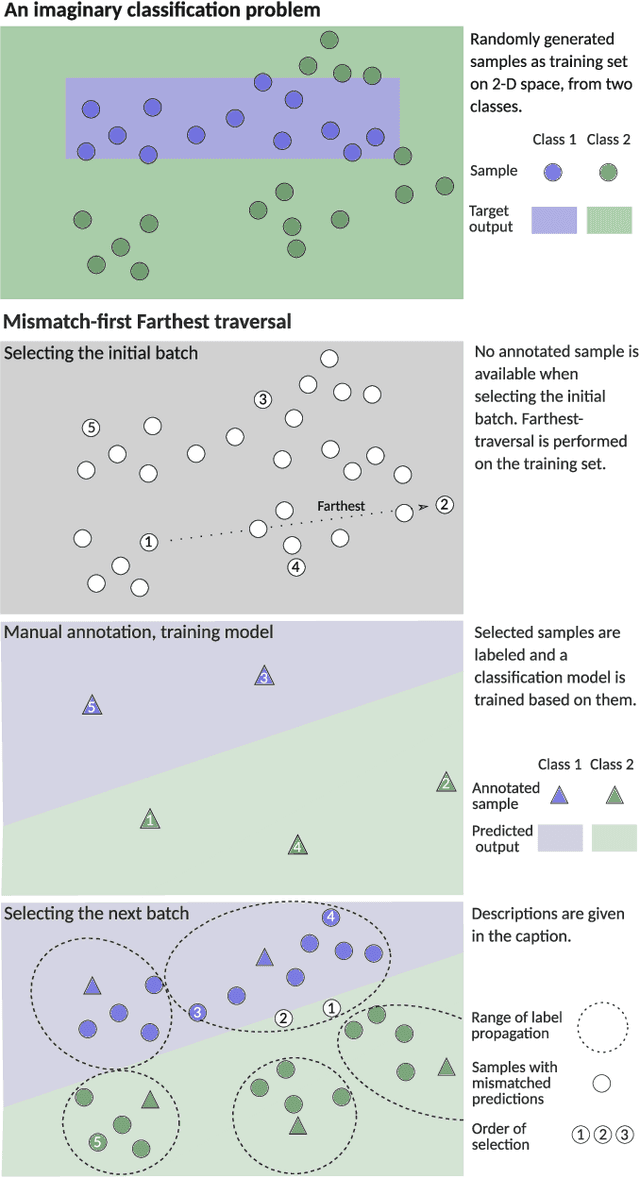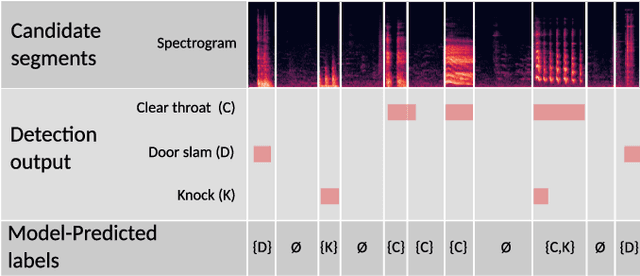Active Learning for Sound Event Detection
Paper and Code
Feb 12, 2020



This paper proposes an active learning system for sound event detection (SED). It aims at maximizing the accuracy of a learned SED model with limited annotation effort. The proposed system analyzes an initially unlabeled audio dataset, from which it selects sound segments for manual annotation. The candidate segments are generated based on a proposed change point detection approach, and the selection is based on the principle of mismatch-first farthest-traversal. During the training of SED models, recordings are used as training inputs, preserving the long-term context for annotated segments. The proposed system clearly outperforms reference methods in the two datasets used for evaluation (TUT Rare Sound 2017 and TAU Spatial Sound 2019). Training with recordings as context outperforms training with only annotated segments. Mismatch-first farthest-traversal outperforms reference sample selection methods based on random sampling and uncertainty sampling. Remarkably, the required annotation effort can be greatly reduced on the dataset where target sound events are rare: by annotating only 2% of the training data, the achieved SED performance is similar to annotating all the training data.
 Add to Chrome
Add to Chrome Add to Firefox
Add to Firefox Add to Edge
Add to Edge